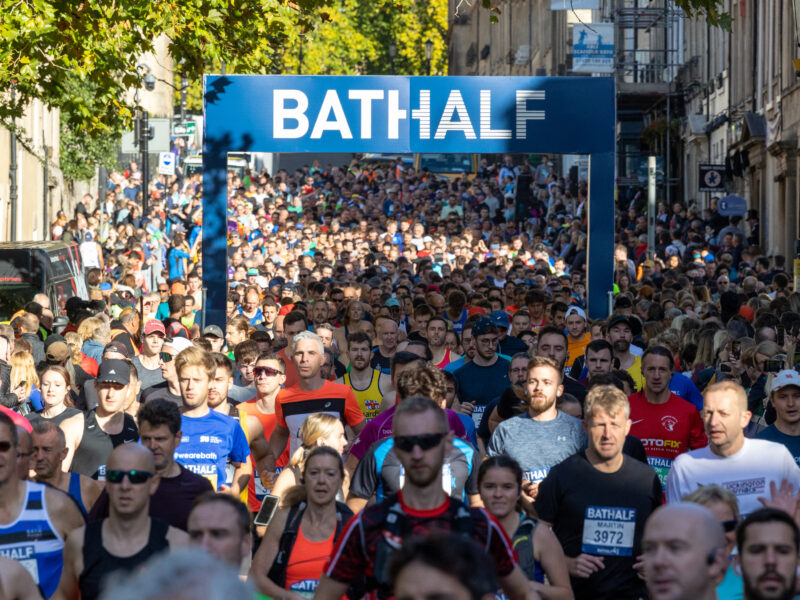Alert – Bath Half marathon is taking place in a matter of weeks – but don’t panic, in this month’s training blog we will look at what you can focus on in the last weeks of training:-
Hopefully by now you will be running consistently each week with one of your regular training runs being a Long Run.
The Long Run is the basis of any endurance training programme – with the distance (or duration) of the training runs gradually increasing over the weeks. With your longest training run (usually completed 2 to 3 weeks before race day) being long enough to give you the confidence to be able to complete the distance on race day – but not so far that you end up peaking too soon and becoming injured or too fatigued on the day of the race.
In general, the reason why the longest run in an endurance training programme is completed about 2 to 3 weeks from the race itself is that in the last few weeks of training you will be entering the Taper period. Simply put – tapering involves reducing the intensity and distance you run in the final weeks of training so that you feel fresh on race day. More about that in next month’s blog.
By now you should have had some practice with Hydration, Fuelling and Nutrition – and whereas this is a subject in its own right and every person is different – there are some things you can fine tune over the coming weeks in training – particularly on your long run. Here are some tips to try out on your long run over the coming weeks*, which you can use on race day itself:-
- The day before – make sure you stay hydrated and don’t skip meals, add in carbohydrate based snacks
- The night before – eat a meal that has slightly more carbohydrates than normal but cut down on root vegetables, spices or foods that may cause GI issues.
- The morning of – eat breakfast around 2 hours before you run and sip water throughout the morning
- During – it is a good idea (especially if it is a hot day) to sip fluid throughout, rather than wait until you are thirsty and to take on board some fuel at the start of the run in preparation for the later stages of the run.
- After – don’t neglect re-hydrating and eating afterwards – food is fuel for recovery as well as energy!
*Not everyone runs in the morning or eats breakfast before – but it’s a good idea to have at least 1 training run that mimics the actual start time of the race so you can practice the timings of when to eat etc.
The other thing to focus on in the latter weeks of a training programme is Injury Prevention – now is not the time to try a new sport and neither is it a time to cram in any missed training runs. Getting the balance right between running, other training, work, families and life in general can be a challenge but it is important that we don’t neglect rest days or including at least 1 day of very light exercise. Even professional athletes have a day off training – to focus on rest and recovery – so us everyday athletes should too!
Another Coach said to me ‘what would you rather be facing on race day ? – being very over-trained and feeling broken, just wanting to get the race over – even if it means getting injured and having to take 3 months off training or very slightly under-trained, not having peaked yet with your best performance about to happen when it matters most?’
I have experienced both and I prefer the latter option or there is the Goldilocks Principle where you are striving for the perfect combination of ‘not too much’ and ‘not too little’ training – that takes a lot of focus and almost certainly some help from a Coach or other fitness professional.
Finally – try to stay focussed over the coming weeks – use every long run as a ‘dress rehearsal’ – and if you have your race day kit, wear that too in training.
See you next month !
Angela MacAusland
Run Coach Angela and Run Bath Director and Head Coach


